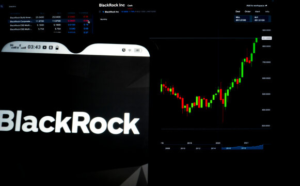In a groundbreaking deal, BlackRock has sealed an agreement to purchase Global Infrastructure Partners (GIP) for a hefty sum exceeding $12.5 billion in a combination of cash and stock. This strategic move is set to significantly expand the footprint of the $10 trillion asset manager in alternative assets, reshaping the landscape of private market investing.
The acquisition positions BlackRock as the world’s second-largest infrastructure manager, trailing only behind Macquarie. GIP, boasting approximately $106 billion in assets under management, holds prime assets such as Sydney and London Gatwick airports, the Port of Melbourne, the Suez water group, extensive green energy holdings, and a substantial stake in a major shale oil pipeline.

As part of the deal, BlackRock will pay $3 billion in cash and issue 12 million of its shares to GIP’s six founders, including chair Adebayo Ogunlesi. Of these shares, 7 million will be transferred at the deal’s closing, with the remaining 5 million scheduled for delivery five years later. The founders intend to share some of the proceeds with their 400 employees, collectively becoming BlackRock’s second-largest shareholder.
Larry Fink, BlackRock’s founder, has openly expressed the firm’s pursuit of a transformative deal, reminiscent of the 2009 acquisition of BGI from Barclays. This move propelled BlackRock into a dominant position in passive investing and secured its status as the world’s largest money manager. Fink’s focus on alternative investments as a growth area led to extensive discussions with prominent names in private equity, private credit, and infrastructure.
The acquisition of GIP, a coveted platform in the alternatives industry, began in September, aligning with BlackRock’s strategic goal to capitalize on the increasing demand for long-term investment funds in decarbonization, energy security, and power grids.
The ripple effects of this deal could trigger a broader wave of consolidation in the industry, compelling large privately held alternative firms to consider stock market listings or strategic partnerships with traditional asset managers. Notable private equity groups like CVC Capital Partners, General Atlantic, and L Catterton have been exploring the possibility of going public.

Despite facing criticism from Republicans for “woke capitalism” and climate activists for perceived inaction on carbon emissions, BlackRock reported robust performance, with adjusted net income exceeding analyst expectations at $1.45 billion. Assets under management surpassed $10 trillion, driven by rising markets and $96 billion in net inflows in the fourth quarter.
Alongside the acquisition news, BlackRock unveiled a major reorganization aimed at simplifying operations and meeting client demands for higher yields and customized investment products. The infrastructure business will integrate with GIP under the leadership of Adebayo Ogunlesi, who will join BlackRock’s global executive committee and board.
In a bid to further enhance its position, BlackRock will consolidate iShares index funds with active funds and separately managed accounts under a new chief product officer, Stephen Cohen. A new international business structure, led by Rachel Lord, aims to strengthen BlackRock’s presence in fast-growing markets outside the US.
Executives from rival financial firms have eyed GIP as a potential acquisition for years, drawn to its track record of delivering both financial and operational improvements to acquired assets. GIP’s portfolio companies boast combined annual revenues of $75 billion and employ 115,000 people.
With the deal set to close in the summer, contingent on regulatory approvals and consent from GIP’s limited partners, BlackRock is poised to make a significant leap in the alternative assets space. The longstanding connection between Larry Fink and Adebayo Ogunlesi, dating back to their time at Credit Suisse in the 1980s, adds a personal touch to the creation of what they believe will be the world’s premier infrastructure investment firm.
GIP’s rapid growth, buoyed by an era of low interest rates, aligns with the trend of large institutions seeking unlisted investments as an alternative to traditional stocks and bonds. The acquisition reflects BlackRock’s strategic positioning to tap into the expanding $1 trillion infrastructure market.
Disclaimer: The information provided in this paraphrased blog is for informational purposes only and does not constitute financial, investment, or professional advice. Readers are encouraged to conduct their own research and consult with qualified financial professionals before making any investment decisions. The accuracy, completeness, or reliability of the information is not guaranteed, and the author are not responsible for any errors or omissions or for the results obtained from the use of such information. The content is subject to change without notice.



